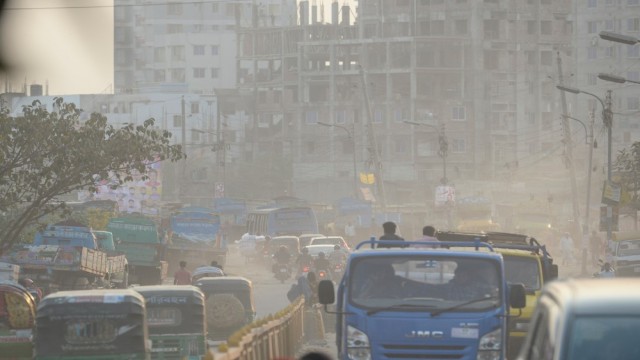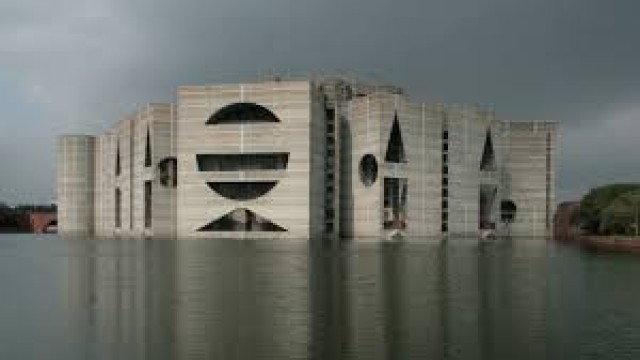The air quality in Bangladesh's capital is significantly better on Monday, (February 26, 2024,) at 9:30 AM, than it was the day before. With an AQI score of 157, Dhaka has become more unhealthy than other Asian cities, while it is still the 09th most polluted city in the world.
Lahore in Pakistan ranks first, second and third in global air pollution with 191, and Delhi and Mumbai in India with 175 and 173 AQ respectively. Also, Yangon of Myanmar, Hangzhou, Wuhan of China, Kathmandu of Nepal, Sarajevo of Bosnia Herzegovina, and Beijing of China are ranking above the capital of Bangladesh (Dhaka) in the list of unhealthy air pollution.
.jpg)
Dhaka, a city long plagued by air pollution, faces recurring challenges with its air quality, particularly worsening during winter months and showing some improvement during the monsoon season. The Air Quality Index (AQI) classifies readings between 150 and 200 as 'unhealthy', 201 to 300 as 'very unhealthy', and anything above 301 as 'hazardous', posing severe health risks to its residents.
Air pollution remains a critical global concern, consistently ranking among the leading risk factors for premature death and disability worldwide.
According to the WHO, air pollution kills an estimated seven million people worldwide every year, primarily due to heightened mortality rates from conditions such as stroke, heart disease, lung cancer, chronic obstructive pulmonary disease, and acute respiratory infections.
The AQI assesses the concentration of five major air pollutants, with Dhaka's current PM2.5 levels surpassing the WHO's annual air quality guideline value by a staggering 14.6 times. These alarming statistics underscore the urgent need for comprehensive measures to mitigate air pollution's devastating impacts on public health and well-being.































Comment: